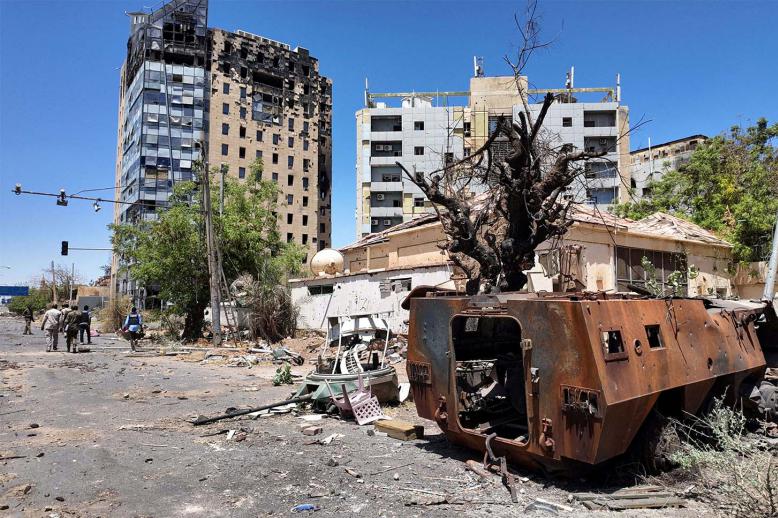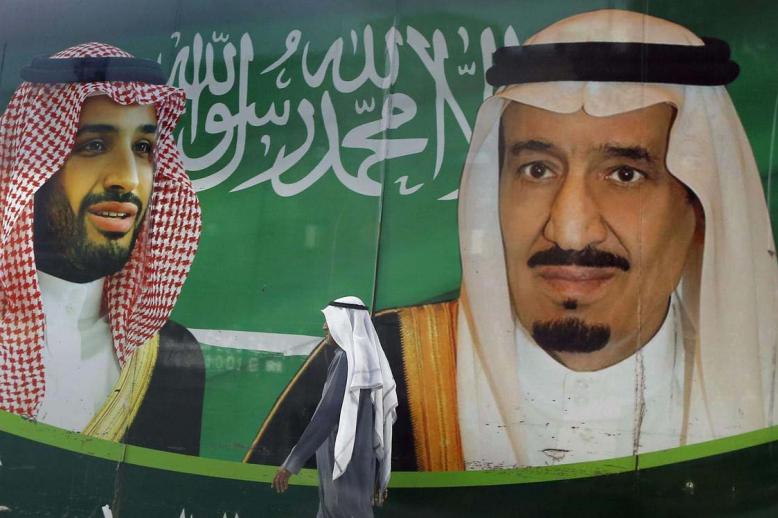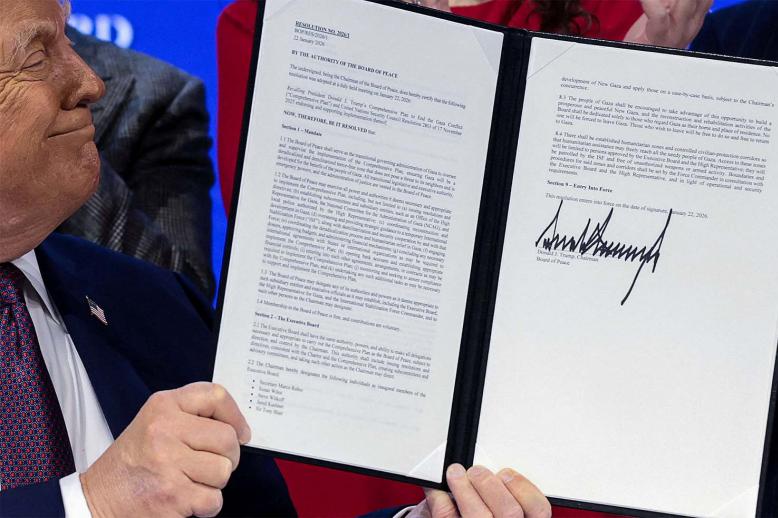Trump and Netanyahu share similar bluster but want no war with Iran
Part of the bromance between US President Donald Trump and Israeli Prime Minister Binyamin Netanyahu is their meeting of the minds when it comes to Iran.
Trump’s denunciation of the 2015 Iran nuclear agreement, calling it the “worst deal ever negotiated,” and his withdrawal from it fit perfectly with Netanyahu’s assessment of the deal, which he disparaged in an address before the US Congress that year.
The Israeli leader in 2018 praised Trump enthusiastically for pulling out of what he deemed was a very flawed deal. They both say Iran is pursuing malign activities in the region that should be stopped.
Both leaders have essentially called for regime change in Iran and have threatened it with military force. At the Warsaw conference in February, put together by the Trump administration to build an anti-Iran coalition, Netanyahu tweeted that countries are “sitting down together with Israel in order to advance the common interests of war with Iran.”
In more recent days, Trump warned: “If Iran wants to fight, that will be the official end of Iran.” This comment came after a couple of weeks of rising tensions between the United States and Iran based in part on meetings between Israeli and US officials in which Israeli intelligence reportedly warned Washington that Iran or pro-Iran proxy forces were planning to strike US interests in Iraq.
Beneath the surface of this blustering is the reality that war with Iran would not be quick, easy or cost-free. Although the Iranian military is no match for the Americans or the Israelis, a war could have consequences that neither Netanyahu nor Trump would want to deal with.
First and foremost, the Israeli security establishment is concerned about retaliatory rocket attacks by Hezbollah at Iran’s behest, the New York Times reported.
Hezbollah has an estimated 130,000 rockets, many of which could hit Tel Aviv. A prolonged Hezbollah barrage of such rockets could severely disrupt the Israeli economy because tens of thousands of citizens would have to seek shelter for many hours a day. In addition, Israeli retaliatory strikes would be likely to cause hundreds of civilian casualties in Lebanon, which would probably bring about condemnations from the international community, as was the case in 2006.
Second, whatever tacit understanding Israel has developed with Egypt and some Gulf Arab countries over their mutual antipathy with Iran would be severely tested. As the 2006 conflict between Israel and Hezbollah demonstrated, any Arab military engagement with Israel, even by a non-state actor such as Hezbollah, can sway public opinion in the Arab world in favour of the belligerent because of its posture of “standing up to Israel.”
Third, a military conflict would not likely just be confined to Hezbollah, because Iranian proxies in Gaza such as Palestinian Islamic Jihad, and Iranian proxies in Iraq could unleash their own rockets against Israel. Although Israel, with US assistance, has developed sophisticated air defence systems, including its much-vaulted Iron Dome, nothing is foolproof.
All of this would pose a political problem for Netanyahu. While such a conflict would initially result in a “rallying around the flag,” over time citizens in Israel would begin to question his mantra of “keeping Israel safe,” especially if there were significant Israeli civilian casualties.
As for Trump, he campaigned against the United States getting involved in Middle East wars, a stance that resonated with the American people who questioned why so much blood and treasure were spent in Iraq.
Trump even charged that his 2016 opponent, Hillary Clinton, was “trigger happy” for her vote as a senator giving US President George W. Bush the authority to go to war against Iraq as well as her position as secretary of state under President Barack Obama for supporting US military intervention in Libya.
Hence, while trying to act tough against Tehran, Trump does not want his legacy to be a war with Iran that could lead to a quagmire, especially if air strikes do not deter Iran and the situation escalates to the point where ground troops are required.
For this reason, Trump has reportedly tried to rein in his more hawkish aides, such as national security adviser John Bolton and Secretary of State Mike Pompeo, both of whom have been advocates for regime change in Iran.
Understanding the political fallout of a potential war, Trump was quick to deny reports that Bolton ordered the Pentagon to revise contingency plans to possibly send 120,000 troops to the Gulf. He told Fox News, his sympathetic media outlet watched by millions of his followers, that “I don’t want to fight [Iran].” Perhaps more important, Trump told Acting Defence Secretary Patrick Shanahan, on May 15, that he did not want to go to war with Iran.
Although this back and forth, hawk and dovish message by Trump on Iran seems confusing, it boils down to wanting Iran to change but doing so without getting involved in a military engagement that could have unforeseen consequences. For Trump, economic sanctions, especially those hitting the oil sector, might do the trick because it has the potential to bring about regime change without firing a shot as angry Iranians take to the streets. However, it is unclear whether the people’s wrath will be directed at the regime or Washington.
The good news for both Trump and Netanyahu is that Iran and its proxies seem to want to avoid a war because of their own calculations. Iranian Supreme Leader Ayatollah Ali Khamenei has emphasised that Iran does not seek a war, while Hadi al-Ameri, a paramilitary commander who represents pro-Iran militias in Iraq stated, as reported in the Wall Street Journal: “If war is ignited, everyone will be burned.”
Even Hezbollah, perhaps because it has suffered many casualties in the Syrian civil war, does not seem eager for a fight. It has also suffered from a reduction of Iranian financial contribution and it may figure that if destruction of Beirut follows a rocket barrage on Tel Aviv, its own position in Lebanon could be jeopardised.
Hence, while bluster from Netanyahu and Trump on Iran will continue, they are probably hoping that the situation does not come down to an actual war because even with sophisticated military prowess at their disposal, war has unintended consequences that could hurt each leader politically.
Gregory Aftandilian is a lecturer at the Pardee School of Global Studies at Boston University and is a former U.S. State Department Middle East analyst.
This article was originally published in The Arab Weekly.







